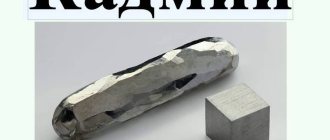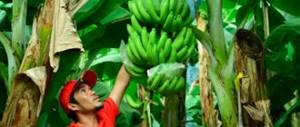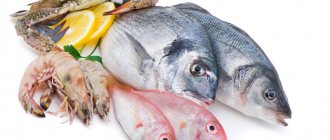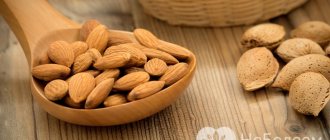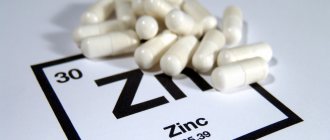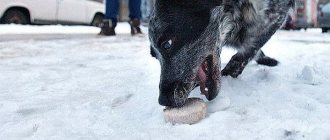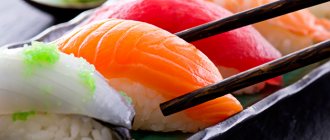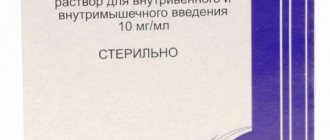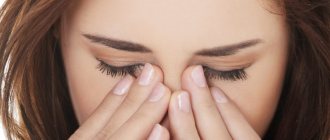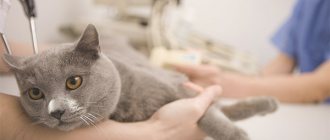Sunflower seeds are a delicacy from childhood, which are eaten raw directly from the seeds in the summer or fried at any time of the year. Those who don’t want to bother with cleaning seeds can today buy packaged grains without shells.
loading…
These seeds are often used in confectionery, bread and cereal bars. However, this product, despite its usefulness, can cause harm. There are a number of reasons why food poisoning can occur from sunflower seeds.
Properties
The sunflower came to the European part of the world after the discovery of America. However, at first it served only a decorative role. Later, a simple Russian peasant decided to try making oil from the seeds. The experiment was a success, and now this product is distributed throughout the world.
Seeds are a storehouse of various vitamins and nutrients.
Substances:
- Vitamin D content is quite high. Thanks to this, the seeds have a beneficial effect on the condition of the skin. This property allows them to be used in cosmetology.
- The presence of various amino acids and unsaturated fatty acids allows participation in fat metabolism.
- Vitamins A, C, E are also present in sunflower seeds.
- Tannins, various carbohydrates, citric and tartaric acids are present.
- The seeds are rich in microelements such as magnesium, phosphorus, zinc, iodine, and selenium.
- They are antioxidants for the whole body.
Despite the high content of useful substances, you should not overuse the seeds to avoid poisoning.
Compound
1 cup (200 ml volume) of pumpkin seeds contains 677 calories and:
- fat - 57.88 grams (including saturated fat - 10.08 g),
- cholesterol - 0 grams,
- carbohydrates - 17.36 grams,
- protein - 35.21 grams
Of the most important elements, pumpkin seeds contain (per 1 cup):
- zinc - 9.02 mg,
- magnesium - 649 mg,
- calcium - 61.36 mg,
- omega 6 - 46.2 mg,
- omega 3 - 129.8 mg,
- phosphorus - 1385.32 mg,
- tryptophan - 0.66 grams,
- vitamin B6 - 0.12 mg,
- selenium - 11.09 mg.
Harm and benefit
The rich composition of the product makes it beneficial for the body. What are the benefits of sunflower seeds?
Benefit:
- Thanks to antioxidants in the composition, the aging process slows down.
- It is an excellent remedy for the prevention of heart and vascular diseases.
- Has a beneficial effect on the acid-base balance.
- Dulls appetite.
- Helps cleanse the body of bile, improves liver function, and improves the digestive process.
- Increases immunity.
- Has a psychological relaxation effect.
As you can see, there are enough benefits in such a product. But there is also a downside. Uncontrolled consumption of seeds can cause intoxication.
Harm:
- The high fat content does not make the seeds a dietary product. They won't make you gain weight, but they won't make you lose weight either.
- If you consume seeds in large quantities, you will feel a feeling of heaviness in the stomach, and the liver will begin to work harder.
- Constant clicking causes destruction of tooth enamel. Teeth may darken.
- Overcooked seeds cause heartburn and digestive problems.
- May cause irritation to the throat and vocal cords.
- Sunflower is one of those plants that very strongly absorb harmful substances from the soil. Therefore, the seeds may also contain them. The most common is cadmium.
- Storage areas are also often treated with special agents to repel rodents, as a result of which they can get on the product.
Thus, eating seeds can not only bring benefits, but also cause poisoning.
What is contained in seeds and its effects (cadmium)
Sunflower seeds contain almost all the beneficial components necessary to maintain the human body.
Contains:
- vitamins A, B, C, D;
- cellulose;
- polyunsaturated fats;
- potassium;
- sodium;
- proteins;
- carbohydrates;
- fatty acid;
- minerals (calcium, zinc, iodine, iron);
- amino acids.
In addition to useful vitamins and microelements, the seeds contain cadmium, which the sunflower absorbs from the soil during the growth process. This is heavy metal. Accumulation in the human body causes poisoning and leads to adverse consequences.
Of course, cadmium is present in the human body. It enters daily with food, drink, and air in small doses and does not cause poisoning if a single intake dose does not exceed 0.07 mg per day. The maximum rate of metal in the body is up to 0.1% mg/kg. Exceeding the permissible limit can already cause poisoning and side effects.
Cadmium accumulation occurs quite quickly. Leads to digestive upset, the development of intoxication, and renal (liver) failure. The elimination process can take 10-15 years.
Almost everyone loves to eat seeds. They are an excellent anti-stress, and they are also a storehouse of vitamins useful for our body.
However, seeds carry not only benefits, but also certain harm. Firstly, sunflower seeds are saturated with fat, which is harmful for people with stomach diseases.
And the high calorie content of the nucleoli also affects the figure. But these are not all the dangers lurking in your favorite delicacy.
note
Increasingly, information has begun to appear that sunflower seeds contain exceeded levels of such a toxic substance as cadmium.
Cadmium enters the seeds through the plant itself – the sunflower. He, in turn, takes it from the soil. Sandy and clay soils are rich in cadmium, which are most often used for growing sunflowers. The percentage of metal content in the soil is significantly increased by the use of mineral fertilizers and the general unfavorable environmental situation.
The first mention of cadmium poisoning was recorded in Japan in the fifties of the twentieth century. Cadmium victims consumed 0.6 mg per day.
The disease was expressed in terrible pain in the lower back and muscles, as well as the so-called “softening” of the bones - osteomalacia. The disease was called “itai-itai,” which almost literally translates as “oh, how painful!”
The skeleton of sick people was deformed, the kidneys could not cope with their functions. Cadmium poisoning looks so scary.
There are standards that clearly indicate the upper threshold for the amount of cadmium in grain crops. According to sanitary standards, the maximum metal limit can be no more than 0.1% mg/kg. This means that products marked with a certification mark (RTS) cannot exceed the permissible limit.
Recent inspections by the Consumer Rights Protection Society have revealed significant cadmium content in sunflower seeds presented on Russian shelves.
Cadmium accumulates in the body quite quickly, but it takes an extremely long time to eliminate it – from ten to thirty years. Taking into account the fact that metal almost continuously enters the body with other foods, liquids and even air, eating seeds full of cadmium is an unaffordable luxury.
You can avoid cadmium poisoning through seeds if you follow simple rules:
- You should not buy seeds without packaging or from grandmothers. In the case of such a purchase, you will not be able to check either the collection date, or the expiration date, much less the manufacturer, but the seeds could have been collected from fields near highways.
- It is best to take seeds in sealed polypropylene packaging. It protects the product from external influences.
- Purchase seeds only from trusted manufacturers, check the integrity of the packaging and expiration dates.
- It is best to buy unshelled seeds, since without the husk the kernels quickly become contaminated and absorb harmful elements from the environment.
Acute cadmium poisoning manifests itself quite quickly. For example, if a toxic metal enters through the digestive system (with the same seeds), then the following symptoms occur:
- Severe nausea and profuse vomiting;
- Abdominal pain – sharp, cutting;
- Low blood pressure;
- Diarrhea;
- Weakness;
- Dehydration;
- Sudden and severe fatigue.
With such poisoning
First of all, it is necessary to stop the effect of the substance on the body by washing the stomach, and also give a laxative. Then the victim begins to take sorbents, such as Polysorb, activated carbon or Enterosgel. Then an antidote, Unithiol, is injected intravenously, which forms a safe compound in the body, binding and helping to remove cadmium from the body.
If the poisoning was not just acute, but also extremely severe, hemodialysis is prescribed. In parallel with these procedures, pain symptoms are relieved, and vitamins A, B, E and C are prescribed along with food rich in pectin, which also helps remove cadmium residues from the body.
You can’t call seeds an essential product. However, once you pick up a bright, fragrant packet of seeds, it’s almost impossible to tear yourself away from it. However, you need to know when to stop.
Therefore, you should not once again get carried away with seeds, especially since their producers are so careless about their cultivation.
Symptoms of poisoning
Seed poisoning and its symptoms vary depending on what exactly caused the intoxication.
Causes and symptoms:
The most common cause of poisoning is cadmium . This element enters the body every day along with air, water and food. For poisoning to occur, up to 30 mg of this substance must enter the body at a time.
Studies of sunflower seeds of various brands have shown that some of them contain quite a lot of this element. What happens when a large amount of cadmium enters the body?
Symptoms of cadmium poisoning:
- Weakness, strong desire to sleep, apathy.
- Painful sensations in the stomach, nausea, vomiting.
- Intestinal disorder - constipation or, conversely, diarrhea.
- Kidney function is impaired, leading to the development of renal failure.
- Painful sensations appear in the head, problems with memory.
- In case of severe poisoning, convulsions may occur.
Poisoning with rat poison. (in dogs) Such intoxications occur much less frequently. As a rule, they manifest themselves in a milder form. The fact is that for severe poisoning to occur, the dosage of the substance must be quite large. Symptoms begin to appear after a few days.
Symptoms of rat poison intoxication:
- weakness,
- dizziness,
- pain in the stomach,
- nausea,
- the presence of bleeding from the mucous membranes, gums,
- In case of serious overdose, gastric bleeding may occur.
Improper storage. If storage conditions are not met, various microorganisms and bacteria can develop on the seeds. As a rule, they cause acute intestinal poisoning.
Symptoms of improper storage:
- nausea, vomiting,
- diarrhea,
- increase in body temperature,
- apathy, weakness.
As you can see, the cause of poisoning by sunflower seeds is not the product itself, but the substances that can get into it.
Differences in intoxication
Pumpkin seeds are no less healthy than sunflower seeds. They also contain a large number of useful elements. By the way, with their help, cadmium is removed from the body, which can penetrate into it along with sunflower seeds.
However, uncontrolled consumption of pumpkin seeds can also cause poisoning. The fact is that they contain a large amount of ascorbic acid, which has an adverse effect on the state of the digestive system.
An overdose of pumpkin seeds can also occur due to their high zinc content. Gradually accumulating in the body, it leads to disruption of the functionality of many systems.
What can be made from green pumpkin. pumpkin dishes
Pumpkin dishes are very popular all over the world.
In Europe, pumpkin is used to make soup, casseroles, purees, and salads, and in Austrian Styria you can even taste pumpkin schnapps and pumpkin coffee. In Armenia, pumpkin is baked, added to pilaf, stuffed with rice or dogwood with nuts, and stewed with lentils. In India, it is used to make excellent halwa. Pumpkin porridge - a traditional Russian dish - can be prepared either from pumpkin alone or with the addition of any cereal. Millet or rice are best suited for porridge. Pumpkin soup will taste better if it is made from baked pumpkin. Pierce a medium-sized pumpkin or several small ones through the top with a knitting needle and place on a baking sheet in the oven preheated to 180°C.
Cooking time depends on the variety and size of the fruit - on average 15–20 minutes per half kilo. Cool the pumpkin and cut off the top, remove the seeds and pulp. Rub the pumpkin pulp through a sieve, put the resulting puree on the fire and bring to a boil, season with sour cream, butter, cream or milk and heat again for a few minutes.
If, when removing the pulp, you did not damage the peel, then you can serve soup or porridge to the table right in it - it looks very impressive! Children will certainly like pumpkin dumplings. They can be prepared from pumpkin puree by mixing it with flour and cheese. Cook them very quickly in moderately boiling water, otherwise they will boil.
Pumpkin dumplings can be served with broth or as a side dish for meat with gravy. Salads are also made from pumpkin. In its raw form, it goes well with carrots, apples, and herbs. Boiled pumpkin is placed in warm salads with meat and seafood. Pumpkin desserts are very varied. They make jam from it, make ice cream, and add it to sweet rice dishes.
When preparing a pumpkin dish, do not throw away the seeds - they are very healthy and tasty. You can sprinkle them on a salad, put them in cookies or a cake. How to dry pumpkin seeds? First, wash the pumpkin seeds to remove pulp and fibers, otherwise they will rot. In air, clean seeds will dry in about three hours, after which they can be easily cleaned.
Peeled pumpkin seeds are spread in an even layer on a baking sheet, sprinkled with vegetable oil and salt - and roasted in the oven at 180°C for about twenty-five minutes. At the same time, they need to be turned over every five minutes. By the way, they eat not only the pumpkin pulp and its seeds, but also the flowers. They are stuffed with cheese and eggs and fried in batter - making a great appetizer or side dish.
First aid and treatment
Treatment for seed poisoning depends on what exactly caused the intoxication.
Therapy:
- In case of cadmium poisoning, gastric lavage is performed and various sorbents are used. In a medical institution, the antidote unithiol is administered, and various techniques are used aimed at restoring the functionality of organs and systems.
- If the cause of the overdose is rat poison, then an antidote is administered - vitamin K. Washing in this case will not help due to the late onset of symptoms.
- If stored improperly, food poisoning most often occurs. In this case, the stomach is washed, various sorbents and antibacterial medications are used. Afterwards, medications are used that restore the intestinal microflora.
Seed poisoning: prevention
Preventive measures for seed poisoning include certain measures.
Measures:
- Do not buy seeds in unverified places,
- Look carefully at the appearance of the product,
- Do not eat the dish if it has an unpleasant smell or taste.
Seed intoxication does not occur very often, but it is possible. Depending on the cause of poisoning, the consequences may vary. Therefore, you should pay attention to the appearance of the product and do not purchase it in unfamiliar places.
